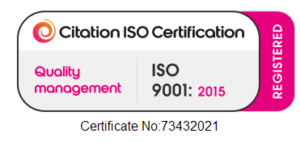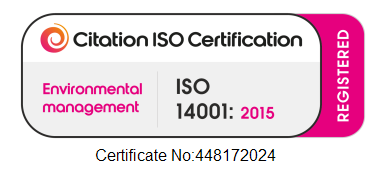So what is the big deal about adaptability? As a business, being adaptable represents your ability to respond to changing market conditions, to pivot your strategy and output, to hear what’s happening around you and to answer the new set of circumstances you find with as limited struggle as possible. Easy right?
Well no, not for large companies. Huge organisations with vast numbers of employees and big supply chains have their own set of advantages. From commanding better economies of scale to dominating markets, reaching global customer bases and boosting their brands in ways that smaller companies would have no hope of. But being adaptable? That’s not quite so easy for them.
Small business on the other hand, are literally made to be adaptable. Having fewer employees necessarily means everyone is doing a bit of everything, and cross trained employees are brilliantly placed to handle change. Then there’s the fact you’re closer to your customer, hearing directly from them, taking in feedback and knowing what exactly you can do to answer their needs. Plus don’t forget that a small company means less risk, you can try out new products, test out new strategies and although they may not always work, you will have risked far less than a large company attempting to do the same thing.
Ultimately small companies are more nimble, finding ways to be exactly what their customer needs, exactly when they need it. Adaptability is the lifeblood of a small business staying competitive. That’s not to say that a businesses would alter who they are at core to remain competitive. No, the mission and ethos of a business remains, just the strategy and techniques around it pivot to respond to changing market conditions, new competitors and in recent times, global pandemics.
But how do you stay adaptable as a small business? Amongst the overwhelming every day running of a business, seeing it through launch and growth, how do you ensure you stay flexible?
Be constantly curious
Consider what you know about your business and the market you are in. Then step away from that and consider what you need to know in order to remain competitive, and responsive. The more you learn, the more you’ll realise the gaps in your industry, the opportunities that exist and the potential for innovation and solution building around those. Becoming habitually curious will stand you in good stead when the unexpected should happen, or when you reach a place where your business needs to evolve.
Get comfortable with the mindset of improvising
Market disruption is where it’s at. Think new models, changing solutions and alternative structures so that you can be the business finding ways to fill the gaps with new ways of doing things. Having a mindset of improvising and always creating means you’re not tied to one way of doing things, or to seeing only one solution. Keep reimagining your product or service, keep talking to your customers and rethink your offering to stay ahead.
Turn the spotlight on your team
The people around you are your greatest asset. In terms of the work they do but more than that, in terms of the work they’re capable of. Small business employees are some of the most versatile and multi tooled in the economy so make sure you get to know yours. Understand their strengths, how they approach problem solving and what potential there is for them to apply their skills in the business. The more you maximise your team’s potential, the more they will be invested in the success of the business, and the more adaptable your business will be.
Think whole, not individual
Often the success (or failure) of a business is not necessarily down to economic change or hardship, but as a result of the business leaders failure to respond properly. Business owners can often be so attached to their initial idea of how the business and product will work, how the market should respond, and what their next steps will be from there, that they forget to make a plan should that not pan out. Step back from any firmly held beliefs you have about the business, think globally about your mission or objective and make decisions from there. Not from personally held views, or preferences linked to your own position in the company. It comes down to asking yourself the hard questions, and then even more difficult, to answering them without attaching any ego.
It can feel overwhelming to launch a small business as a small fish a big pond of enormous established firms. But don’t forget that what they lack in flexibility and responsiveness, you have in spades. Optimising your ability to adapt and to pivot your business strategy and output, is the most valuable asset at your disposal so guard it well.
Whatever your business idea, whether it’s just something you’ve been mulling over or whether you’ve taken some steps on the entrepreneurial path already, we’d love to help. Read some of our Go For It Success Stories [https://www.goforitni.com/success-stories/] and get in touch [link https://www.goforitni.com/get-in-touch/}. Our business experts will be delighted to hear from you and to talk you through everything you might need to know to move forward with your business concept.
Source: Go For IT










